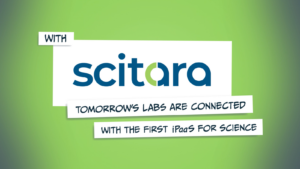Marlborough, MA – The past couple of years have been an interesting time, to say the least. Much of our world and lives have changed, and while some of those changes are thankfully temporary, others are here to stay. One of those changes is a focus on a digital work environment. Before, that idea was scattered across all industries but with the COVID-19 pandemic, it became a mandatory evolution. What was previously considered a project for the future has hurtled forward in time. It has become today’s project. Now more than ever, it is imperative for companies to build their own Labs of the Future. Interested in learning what this is and how to bring it into the present? Read on to find out.
Although it might be obvious, the main theme of the Lab of the Future is digital, as a number of trends show a movement towards this end. The first was touched on in the introduction: the COVID-19 pandemic. Investments in digital ecosystems became paramount as companies across the globe adjusted to pandemic protections, many of which seem to be here to stay. The next is how most people entering the workforce are expecting to work digitally and are more comfortable doing so. Another is how pharmaceutical companies are investing in Artificial Intelligence (AI) to operate “in silico” drug discoveries to accelerate vaccine and medication production. As a result, about two-thirds of life science companies are expected to adopt this Lab of the Future and its digital transformation by 2026. Let’s look at this transition and explore some of the challenges that may be encountered along the way.
The Lab of the Future has a unique environment compared to the current lab. For starters, it involves global networks, allowing for greater collaboration across the world for more successful research. Such connectivity also allows for a better democratization of decision making. However, this can result in a daunting deluge of data, which requires better data mobility and integrity for quick, reliable access. Global access also demands a much more strict security protocol than those used in the past, as the idea of a “company perimeter” dissipates in the Lab of the Future. Pilots that companies embark upon for their transitions can also get stuck in limbo due to things like technical debt from trying to incorporate legacy systems and scope creep, among other things. So, what are some ways to tackle these challenges?
The first is the simplest yet probably the most critical: plan accordingly. Have a clear idea of what your roadmap will be and act on it. Try to avoid adding new ideas into the mix that might slow down or stall the transformation. Second is to embrace many of the aspects of the Lab of the Future. Use AI and machine learning to handle the incoming flood of data. Practice principles of data integrity to keep data secure. Invest in platform architectures designed for the Lab of the Future to reduce costs and resources spent on maintenance.
And there you have it. Hopefully this has provided a quick snapshot on what the Lab of the Future is and how to attain it, because the need for it is coming and fast. As of now, around 60% of pharmaceutical and biopharmaceutical companies have begun their digital transformations, yet less than a quarter of those have committed to actually deploying those digital labs. To avoid getting caught in those transition pitfalls, let Scitara guide you through them. Our iPaaS for science utilizes a flexible and adaptive framework that allows for quick and simple exchange of data across your enterprise while keeping its integrity intact. Scitara DLX also allow for legacy systems to be easily implemented to avoid that technical debt. There’s also no need for scope creep with DLX, meaning more time spent serving your customers. So what do you say? Let Scitara partner with you on your journey towards the Lab of the Future.
For more information, take a look at our recent white paper here to see how Scitara can help you with your digital transformation.
About Scitara
Scitara is a global provider of cloud-based, industry-specific platform and solutions for the life sciences industry. Based in Massachusetts, the Scitara leadership brings decades of experience in solving digital challenges for the scientific laboratory: Meet the Modern Lab™. For more information, please visit www.scitara.com.
